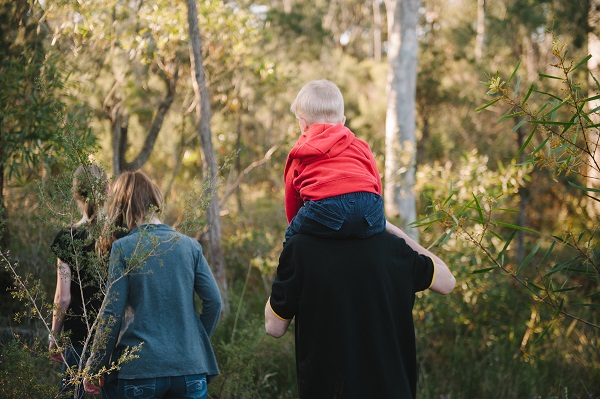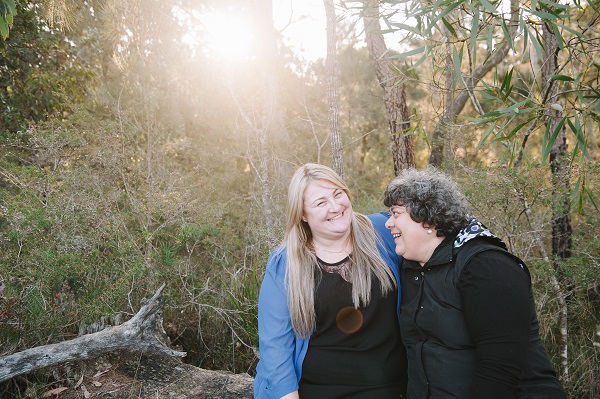Automatic language translation
Our website uses an automatic service to translate our content into different languages. These translations should be used as a guide only. See our Accessibility page for further information.

I didn’t want my baby brother to be in danger, but I didn’t want to hurt my mum either. Daniel’s only a baby – he can’t tell mum he’s hungry and has to eat every day. Mum needs help because she can’t look after herself.
Our caseworker, Tara, told us she was going to write down everything we said. We like that she knows how important our brother is to us.
Tara didn’t think we were being stupid. She made us feel we could tell her the truth because she cares what happens to us.
The Red Flag Meeting made us realise we did the right thing for our brother. It was very sad to tell Tara the awful things that happened to us growing up, but she said that it was not our fault and that we’d looked after Mum as best we could.
It was good talking about the awful stuff. It does make you feel better, and it makes you feel stronger. Now Daniel will have a real chance to go to school so he can learn to read and write, and he’ll be fed properly.
When they found out that their mum, Lucy, was pregnant again, Casey (11), Hamish (13) and Hayley (15) were incredibly worried. They’d been in care for a few years and told their foster carer, Nicole, how fearful they were. Nicole called me straightaway to pass on their concerns.
I wanted to support her in managing the children’s worries and better understanding them, so I called a Red Flag Meeting for the next day for the three children, Nicole and me.

We have Red Flag Meetings when children are not safe and something needs to happen quickly; it is one way we pull together plans. Anybody can call one – young people, foster carers, birth families, caseworkers. It is powerful for children in care, as it gives them some control and a safe place to talk and they know they’ll be heard.
At the start of our meeting, I explained how it would work – one-third of our time would involve talking about the problem and two-thirds about the solution, and everyone would get their say. Then we got talking. For the children it was like opening an old wound – the pain and anguish just gushed out. Nicole and I heard things we hadn’t known about and realised just how bad it had been.
All of the children were upset, so the start of the meeting was distressing for everyone. Nicole and I were struck by how frightened, yet determined they were. In the past, they’d been super protective of their mum. It was so brave of them to recognise that to protect the baby they had to say things that had previously been guarded by loyalty. Hamish told us, ‘The baby can’t speak for itself, so we have to’.
Their mum, Lucy, has mental health problems that left her bedridden for days on end. The children described how they were left to fend for themselves, and how hungry they got when the food ran out. They said they couldn’t imagine what this would be like for a tiny baby, who wouldn’t be able to scavenge around for a meal like they had.
The kids are wise beyond their years. Hearing them talk made me appreciate the huge sense of responsibility they were carrying for their new brother or sister. They love their mum, but they were adamant this new little bub would be protected from the kinds of experiences they had as small children. Even through all this trauma, their resilience is something that stands out to me. They are connected to Lucy, Nicole and each other with such a sense of genuine love; it’s a credit to who they are at their core. It inspires me that they’ve been through so much and still have these amazing qualities.
Once their worries were out on the table, we worked through them together. We talked about every worry, the grief and loss of their own childhoods and their hopes for their unborn sibling. I wrote everything down as the children talked honestly about their experiences. This took a lot of courage on their part, as they understood that their mum may read what they said when it went to court. I was so proud of them.
At the end of the meeting, I explained that I’d talk to DCJ about their worries. They came up with such thoughtful ideas about how they could support their mum and care for the baby if they couldn’t live with her. Children and young people really respond when their ideas are taken seriously and they get to be a part of the problem solving.
Nicole told me afterwards that she hadn’t expected so much to happen, but that it helped her to understand the children’s history and better support them. ‘Central to everything’, she said, ‘was that what had happened to them in the past would not happen to their sibling. They couldn’t change what had happened to them, but they had a choice to make sure it didn’t happen again.’
The DCJ caseworker sent the children a letter, thanking them for all they’d shared and telling them how the Department would work to keep the baby safe. The children were so relieved to get that letter; it told them that someone was listening.
The children were so excited when they were told they had a baby brother called Daniel. The Children’s Court determined he could not stay with Lucy and placed him in the next best place – with his sisters and brother. They were over the moon.
Nicole is just the best – she and her husband, William, welcomed Daniel unconditionally. He’s definitely the favourite of the family – everyone dotes on this happy, cheeky, little fellow.
The kids have come so far since that Red Flag Meeting. The experience seems to have empowered them to stand up for themselves, and they now advocate for each other constantly, telling me what’s working or what isn’t. They make my job quite hard! They are completely honest about how they feel about me, so I have my hands full – but in a good way. It’s been lovely to see their confidence grow and to see them be more open to our support.
The children are so amazing. Casey always has such a huge grin on her face that you can’t help but smile back. She’s been the most vocal about her baby brother, and wants him to have all the opportunities Nicole has given her. I love hearing about her big plans for the future. Hamish is very protective of his brother and sisters and takes care of everyone around him. He loves cooking – he brought in homemade muffins to the office the other day and shared them. Hayley is very nurturing and wants to pursue childcare when she leaves school, which is perfect for her. She is beautiful with children.
I continue to give the kids the opportunity to have a voice and to share their thoughts and dreams about what they want for their lives. We’re still going through court for Daniel to determine where he will live long term, so none of us are sure if he’ll eventually go home with Lucy or stay with Nicole. Whatever happens, the children are prepared, and they’ll always be in little Dan’s life. He doesn’t realise it yet, but he has three amazing siblings who will always have his back.
NSW State Coordinator (Acting), CREATE Foundation
This story is a testament to the resourcefulness, insight and resilience of young people in the most difficult of circumstances. Not only did Casey, Hamish and Hayley display incredible empathy for both their mother and their new brother, they also had the bravery to seek help and take action to protect their family.
It is also a great example of adults recognising children’s wisdom and their solutions to the challenges they face. In this case, MacKillop Family Services found innovative and sensitive ways to empower young people to have a voice through the Red Flag Meeting and letter writing. Rather than being tokenistic, Tara took steps to ensure the three siblings understood the process, were heard and received feedback on what was happening. By taking young people’s feelings, thoughts and suggestions seriously, she showed the courage to give up some of her power and respect young people as experts on their own lives.
Finally, it is inspiring to see the effort made to keep the siblings together and the incredible role the foster carer, Nicole, played in honouring the importance of sibling relationships to young people in care.
16 May 2023